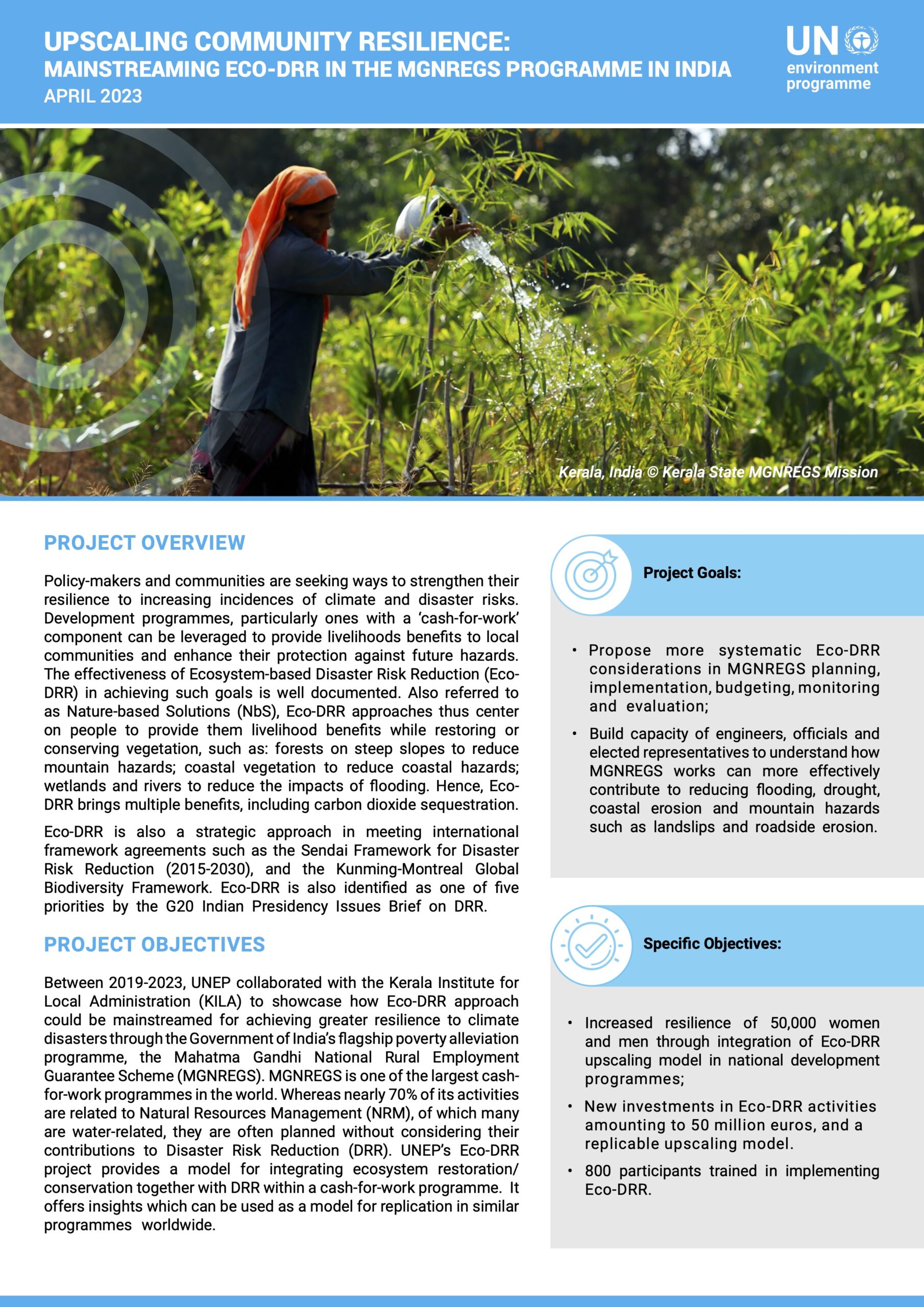Upscaling Community Resilience: Mainstreaming Eco-DRR in the MGNREGS Programme in India
Author : UNEP Eco-DRR teamPublications : Report
Published Date : 12 Aug,2023

Abstract
Policy-makers and communities are seeking ways to strengthen their resilience to increasing incidences of climate and disaster risks. Development programmes, particularly ones with a ‘cash-for-work’ component can be leveraged to provide livelihoods benefits to local communities and enhance their protection against future hazards. The effectiveness of Ecosystem-based Disaster Risk Reduction (Eco- DRR) in achieving such goals is well documented. Also referred to as Nature-based Solutions (NbS), Eco-DRR approaches thus centre on people to provide them livelihood benefits while restoring or conserving vegetation, such as: forests on steep slopes to reduce mountain hazards; coastal vegetation to reduce coastal hazards; wetlands and rivers to reduce the impacts of flooding. Hence, Eco- DRR brings multiple benefits, including carbon dioxide sequestration. Eco-DRR is also a strategic approach in meeting international framework agreements such as the Sendai Framework for Disaster Risk Reduction (2015-2030), and the Kunming-Montreal Global Biodiversity Framework. Eco-DRR is also identified as one of five priorities by the G20 Indian Presidency Issues Brief on DRR.